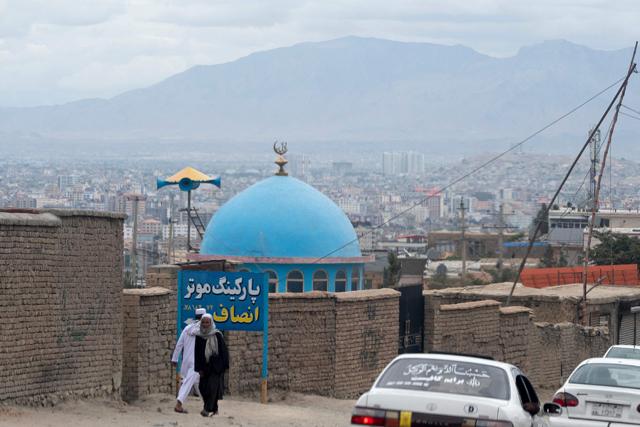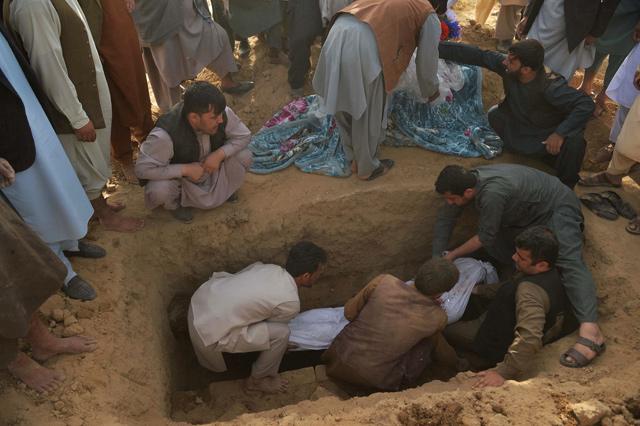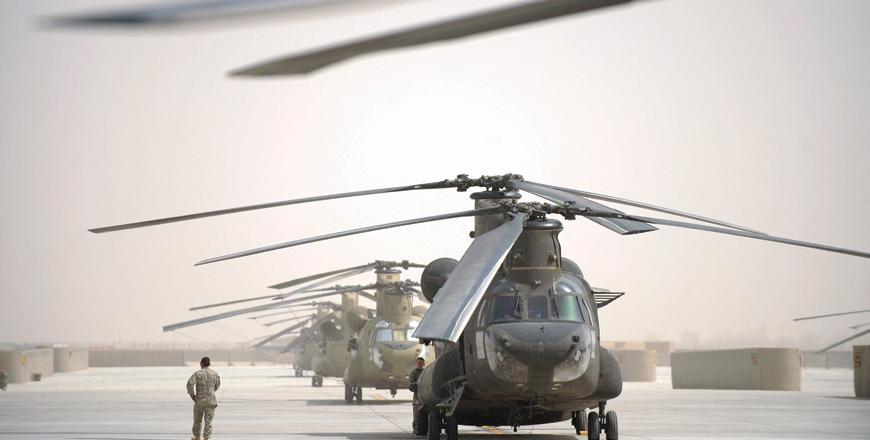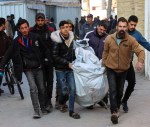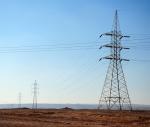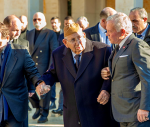You are here
Afghan Shiites bury dead as Kandahar attack toll mounts
By AFP - Oct 16,2021 - Last updated at Oct 16,2021
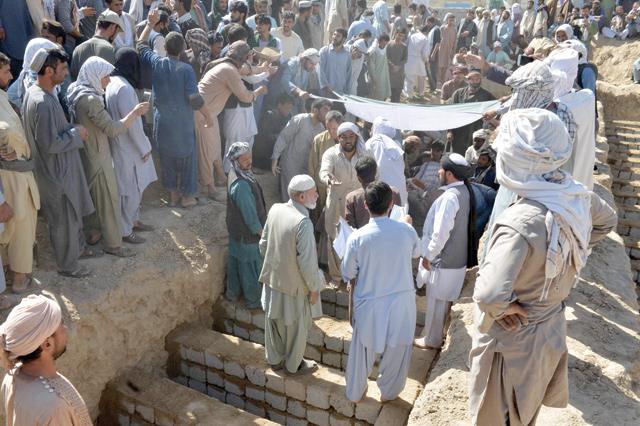
People gather during the burial of victims at a graveyard in Kandahar on Saturday, a day after 41 people were killed and scores were injured in a suicide bomb attack claimed by Daesh in a Shiite mosque in Kandahar (AFP photo)
KANDAHAR, Afghanistan — Afghanistan's Shiite minority buried their dead for the second Saturday in a row after another suicide bomb attack on a mosque claimed by the Daesh terror group group.
Religious authorities in the southern city of Kandahar told AFP the toll from Friday's assault had reached 60, as hundreds of diggers opened row after row of graves in the dusty soil.
The latest massacre came just a week after another Daesh-claimed attack on Shiite worshippers at a mosque in the northern city of Kunduz that killed more than 60 people.
In a statement released on its Telegram channels, the extremist group said two Daesh suicide bombers carried out separate attacks on different parts of the mosque in Kandahar, the spiritual heartland of the Taliban, while worshippers prayed inside.
The group, bitter rivals of fellow Islamist movement the Taliban, who swept back to power in Afghanistan in August as the United States and its allies withdrew, regards Shiite Muslims as heretics.
UK-based conflict analysis firm ExTrac said Friday's assault was the first by Daesh in Kandahar, and the fourth mass casualty massacre since the Taliban took Kabul.
Researcher Abdul Sayed told AFP the attack "challenged the Taliban claims of holding control on the country. If the Taliban can't protect Kandahar from a Daesh attack, how could it protect the rest of the country?"
The killings triggered international condemnation. UN Secretary General Antonio Guterres condemned the “despicable attack” and demanded those using violence to restrict Afghans’ religious freedom be brought to justice.
At the gravesides, mourner Gul Ahmad told AFP of his grief over his brother’s slaying: “He had two little children. He had a home to live in. He had everything. The pain of the loss cannot be described with words.”
The all-male crowd brought body after body, shrouded in white sheets, as a dust storm was whipped up by the constant digging.
“The world will remember this. The Islamic world will remember this barbarism, specifically the dignified people of Afghanistan,” warned another mourner, Muhammad Agha.
Inside the mosque, after the blast, the walls were pockmarked by shrapnel and volunteers swept up debris in the ornately painted prayer hall. Rubble lay in an entrance corridor.
In the wake of the explosions, Kandahar police chief Maulvi Mehmood said security for the mosque had been provided by guards from the Shiite community but that following the “brutal attack” the Taliban would take charge of its protection.
Many worshippers
Witnesses spoke of gunfire alongside the explosions, and a security guard assigned to protect the mosque said three of his comrades had been shot as the bombers fought their way in.
Sayed Rohullah told AFP: “It was the Friday prayer time and when we were preparing I heard shots. Two people had entered the mosque.”
“They had opened fire on the guards and in response the guards had also opened fire on them. One of them committed a suicide blast inside the mosque.”
Other bombs were detonated in crowded areas outside the main building, he and other witnesses said.
US State Department spokesman Ned Price said Washington condemned the attack and reiterated a call for the “Taliban to live up to the commitment it has made to counterterrorism”.
“We are determined to see to it that no group... can ever again use Afghan soil as a launching pad for attacks on the United States or other countries.”
The Taliban, who seized control of Afghanistan after overthrowing the US-backed government, have their own history of persecuting Shiites.
But the new Taliban-led administration has vowed to stabilise the country and in the wake of the Kunduz attack promised to protect the Shiite minority now living under its rule.
Shiites are estimated to make up roughly 10 per cent of the Afghan population. Many of them are Hazara, an ethnic group that has been persecuted in Afghanistan for decades.
In October 2017, a Daesh suicide attacker struck a Shiite mosque in the west of Kabul, killing 56 people and wounding 55.
Related Articles
KABUL — A blast that ripped through a mosque packed with worshippers in the Afghan capital killed at least 21 people and wounded more than t
KUNDUZ, Afghanistan — Mourners from Afghanistan's minority Shiite community buried their dead on Saturday after a suicide attack on a mosque
KANDAHAR, Afghanistan — Fighting between the Taliban and Afghan government forces resumed Sunday in the restive southern province of Helmand


